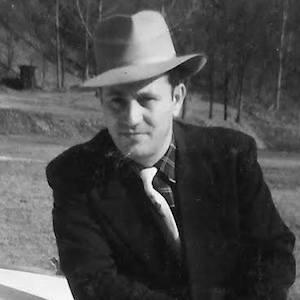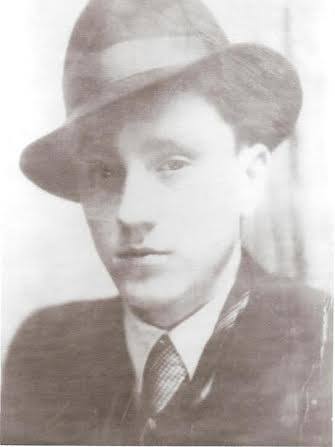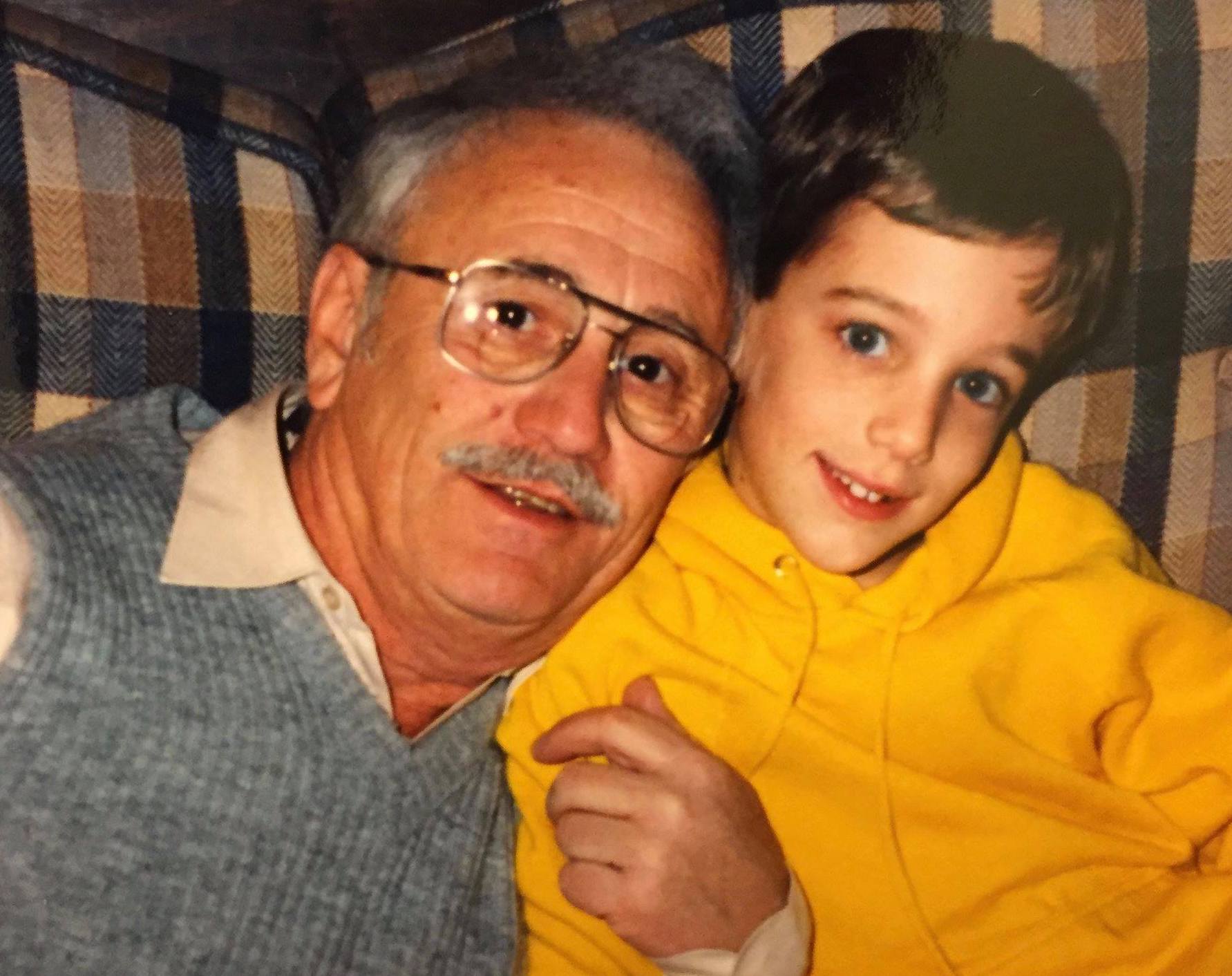
Early on January 27, 2018, The Most Interesting Man in the World passed away at the age of 91.
No, I'm not speaking of Jonathan Goldsmith, the guy who just pretended to be The Most Interesting Man in the World. I'm speaking of the real deal, my grandfather, Dimitri Berezow -- a man who survived Stalin and Hitler, cheated death on multiple occasions, and went on to live the American dream.
His was an impossibly unique story – one that seems too extraordinary to be true (and yet is) -- capped with a cautionary tale about modern healthcare.
Living Free in Stalin's Russia
For many people, including my Ukrainian grandmother, life in the Soviet Union was hell. To break the will of the Ukrainian people, Joseph Stalin implemented a mass starvation program now known as the Holodomor, which killed millions. But life in Russia was quite a bit different, at least if one avoided Stalin’s bad side.
My grandfather was born in 1926 in Rostov-on-Don, a port city close to the Black Sea. His mother was a waitress and rather popular with the boys, so my grandfather never knew his dad. He also didn’t particularly care for school, skipping the classroom for the local cinema. He got away with that on most days. But one time, when his mother found him at home instead of at school, she hit him in the head with a frying pan and nearly killed him.
Maybe that’s when he developed his sense of humor. He was outside with his grandmother one day when his mother was late arriving home. He consoled her with a bit of fake news: There had been a terrible streetcar accident, and his mother was probably on it. Upon hearing this, his grandmother passed out, after which he sat on a fence and threw pebbles at her in an attempt to revive her.
I mentioned these people were Russian, right?
Messin' with the Nazis in Germany
During Operation Barbarossa in 1941, Nazi Germany invaded the Soviet Union. One reason was to kidnap civilians and send them to Germany as slave labor, a plan carried out by Fritz Sauckel, who was later hanged at Nuremberg for this war crime. When the Nazis came for my grandfather in 1942, his mother insisted on going with him. At the age of 16, my grandfather and his mom, along with countless other Eastern Europeans, were loaded into cattle cars and freighted to Germany.
 My grandfather had an uncanny ability to blend in and make friends. Though he never spent much time in school, he had a raw intelligence that allowed him to learn to speak flawless Polish, Ukrainian, and German. In fact, his German fluency was so thorough that other Germans mistook him for a fellow compatriot. He recklessly used this to his advantage.
My grandfather had an uncanny ability to blend in and make friends. Though he never spent much time in school, he had a raw intelligence that allowed him to learn to speak flawless Polish, Ukrainian, and German. In fact, his German fluency was so thorough that other Germans mistook him for a fellow compatriot. He recklessly used this to his advantage.
Early in the war, he befriended “George,” a Nazi guard at the labor camp, who he later told us reminded him of Sergeant Schultz from Hogan’s Heroes. In exchange for cigarettes that his mother smuggled to him, George would allow my grandfather to sneak out of camp for a few hours. Sometimes, he would go out on the town; other times, he would visit the young Ukrainian girl who would become my grandmother. (George wasn’t always so accommodating. As the war drew to a close, he got nasty and was stabbed to death by a prisoner.)
One of my grandfather’s jobs was to remove unexploded Allied bombs. After the Nazis identified one, they would have the Eastern European forced labor jump into the hole with shovels to remove it – while the Nazis slowly backed away.
The laborers had devised various tricks for getting out of work. One of them was to tie a string or rubber band around a wrist, restricting the blood supply to the hand. Then, they would beat on their hand with a spoon. Apparently (I’ve never tested this), their hands would swell up, and they could convince some middle management Nazi to let them have the day off.
My grandfather pushed his luck when he tried to get a day off by claiming he had a sore throat. This landed him in the commandant’s office. Unamused, the commandant (who reminded my grandfather of Colonel Klink from Hogan’s Heroes), backhanded him in the face, and then asked, “How do you feel now?”
“Great!”
Toward the end of the war, my grandfather continued taking reckless gambles, not only with his money but with his life. On one occasion when he was let out of the camp, he was approached by two Gestapo (Nazi secret police). Panicking, he fell back on what he did best: Blending in. He clicked his heels and shouted in flawless German, “Heil Hitler!” after which he asked the officers if they were doing a good job. They dutifully answered his questions, convinced that he was some sort of undercover agent.
On yet another bizarre excursion, my grandfather took off his labor camp clothes and donned his best white suit. (His mother smuggled him not only cigarettes but nice clothing, as well.) Curious about a nearby munitions factory, he walked in. The Germans who worked there nodded at him, and he quickly realized they thought he was important. So, he walked slowly with his hands behind his back, and asked the workers to explain what they were doing. They complied. That’s when the factory announced that Hermann Göring was in the building.
Hermann Göring was in charge of the Nazi air force, called the Luftwaffe. As he inspected the factory, the workers fell into line. One by one, Göring shook each of their hands, including my grandfather’s. Had he known that he was a Russian, Göring would have shown no hesitancy to execute him on the spot.
 Coming to America
Coming to America
As it so happens, my grandparents were surrounded mostly by Polish slave labor. This served them well, as Stalin had declared that Soviet prisoners of war were traitors who should be sent to gulags upon their return. My grandparents, having learned Polish, had no trouble blending in. They even pretended to be Catholic, even though my grandmother was devoutly Eastern Orthodox. When the war was over, they immigrated to America, over the objections of my grandfather, who preferred Argentina because of the many cowboy movies he saw that were filmed there.
Though one could take my grandfather out of Eastern Europe, it was impossible to take Eastern Europe out of my grandfather. He was a reckless driver, speeding his way around the small town in Illinois which accepted him as a refugee. Later in life, he drove a metallic green 1968 Thunderbird, which was the envy of the town. He continued to dress immaculately, as if he was filming a scene for The Godfather, and he enjoyed that many people thought he had mafia connections.
His charming Russian accent and fantastic laugh won over every person he met. Just like in Germany, this served him well in America. One day, when he was driving to St. Louis, President Lyndon Johnson was in town, and the police were stopping and checking vehicles. My grandfather knew he could be in serious trouble because he always carried a gun. When the police approached his car, he rolled down the window and shouted, “I’m a doctor! I am going to the hospital to operate!”
It worked. Not only did they let him through, he got a motorcycle escort.
Rasputin Genetics
My grandfather’s luck was nearly limitless. Throughout much of his life, he had sky-high cholesterol. He used to eat sticks of butter. Eventually, this caught up with him. In 1990, when he was 64 years old, he underwent triple bypass surgery. It was successful, and the cardiologist gave him another 10 to 15 years. He was off by a factor of two.
Determined to stay healthy, my grandfather took up bicycling. He peddled around 15 miles per day for several years. One time, in his 70’s, he got hit by a car, but that didn’t stop him. It was mostly a minor nuisance.
Starting in 2002, when my grandfather was 76, he began experiencing minor strokes. He always fully recovered. He also occasionally had intestinal bleeding, which would require him to be taken to the hospital and “re-fueled” with blood. Despite these setbacks, he continued driving, exercising, and living an incredibly active life through his mid-80’s. Among our family members, he earned the nickname “Rasputin.”
Modern Medicine Can Heal Our Bodies But Not Our Minds
His luck, though, ran out. Biology finally took its toll. We knew something was wrong when he would accidentally leave the kitchen sink faucet running. Then, one night, he forgot how to get home. That’s when we all knew he had dementia.
As a writer and scientist, I cannot imagine a fate worse than dementia. It slowly robs a person not only of his memories but of his personality. My grandfather became distant, disconnected. His trademark laugh was sometimes replaced by anger and hostility. Conversations that could last hours were shortened to brief comments about the weather. (He always claimed it was 70 and sunny, regardless of what the actual weather was.) He no longer recognized his children. He was a shell of his former self.
 The final time I saw him, he was in an assisted living community. As I approached, I saw a distinct look in his eye that said, “I should know who you are.” But I don’t think he did. Behind what became a toothless smile, I saw a man who appeared depressed. Defeated. A man waiting to die.
The final time I saw him, he was in an assisted living community. As I approached, I saw a distinct look in his eye that said, “I should know who you are.” But I don’t think he did. Behind what became a toothless smile, I saw a man who appeared depressed. Defeated. A man waiting to die.
This was hard to take. Modern medicine could heal our bodies but not our minds. What was true for my grandfather was also true for millions of other Americans. Science can work miracles for our bodies but not for our brains. Is it really a good thing to keep people alive at the expense of their mental, emotional, and social well-being? Is that ethical? Is that moral? My grandfather was alive despite us knowing that he never wanted to live like this.
For years, I begged God to take him. In late 2017, my grandfather suffered a stroke that left him partially paralyzed. Then, in January 2018, my prayer was answered, albeit belatedly.
I miss that man beyond words. He truly was, in every possible sense, The Most Interesting Man in the World. An entire book could be written about his life. Perhaps I should do that someday.



